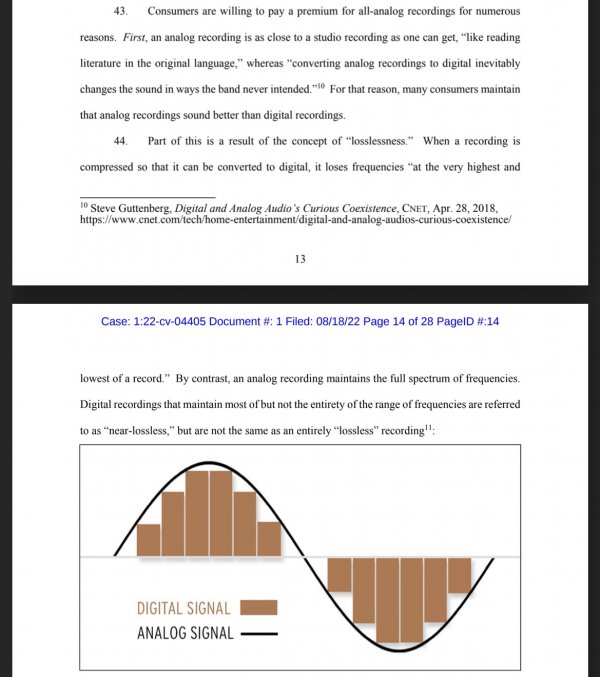AAA vinyl and DSD vinyl on a high end system in open court? Can you imagine? What great exposure.
Although it would be funny to watch, IMHO no judge would allow such theater - MoFi lawyers would easily flood him with reports on scientific evidence that the DSD step is not audible and audiophiles that do not care about scientific evidence do not have anything to share!
IMHO all they can be accused is false marketing claims, unless some WBF member risks going there with evidence of health damage due to digitalitis!









